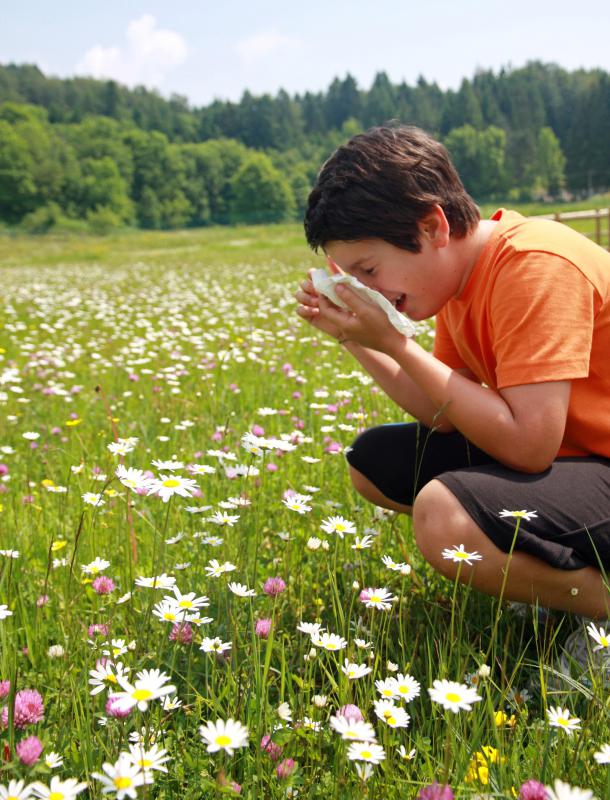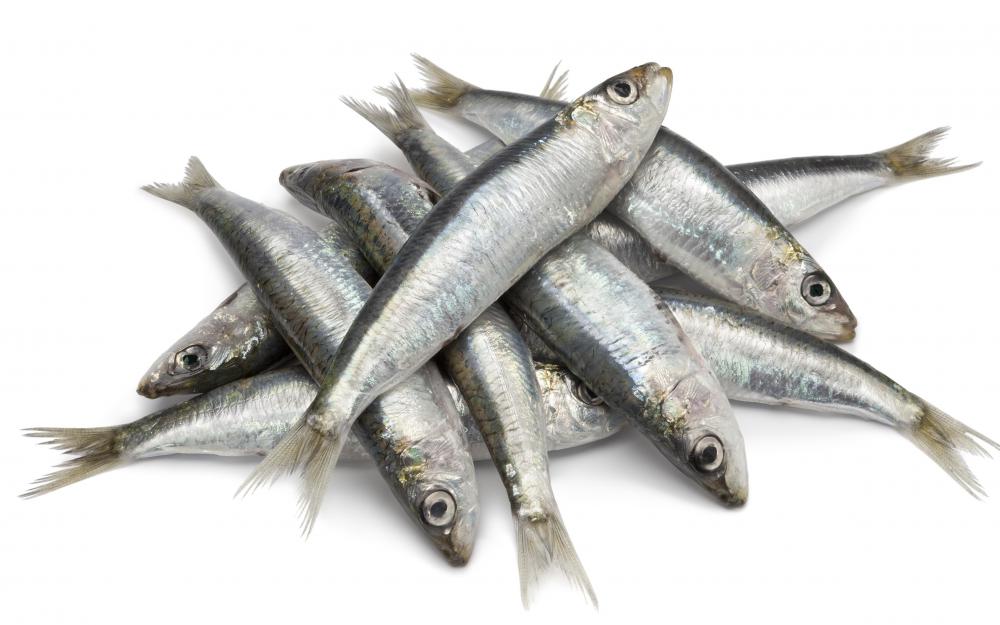At WiseGEEK, we're committed to delivering accurate, trustworthy information. Our expert-authored content is rigorously fact-checked and sourced from credible authorities. Discover how we uphold the highest standards in providing you with reliable knowledge.
What are the Best Ways to Treat Hay Fever in Children?
Millions of children are diagnosed with hay fever every year. Also known as allergic rhinitis, it is one of the most common chronic childhood ailments. The best ways to treat hay fever in children include the use of antihistamines, decongestants and topical steroids. Home remedies also can be used to reduce the severity of some symptoms. Prevention is better than a cure, and there are steps that can be taken to avoid or reduce hay fever symptoms.
The symptoms of hay fever in children include sneezing, watery eyes, coughing and itchy throat. Headaches, stomach aches, tiredness and trouble sleeping are some of the incidental symptoms. Children who have hay fever might have trouble concentrating at school, and studies have shown they do not do as well on tests, on average. Parents should consult with a doctor when their child shows signs of possibly having hay fever.

Although hay fever in children is not curable, there are treatments for its symptoms. Antihistamines are readily available either over the counter or prescribed by a doctor. Newer formulations of these medications do not cause drowsiness or some of the other side effects that antihistamines once did, and they are available in tablet or liquid form or as a nasal spray. Topical steroids also are available in a nasal spray that will help open the nasal passages. Decongestants relieve nasal congestion as well.

There are several things that can be done to try to prevent hay fever and its symptoms. This disease is worse when pollen counts are high, such as in the morning and early evening, so affected children can be kept indoors during these periods. Doors and windows should be kept closed at these times as well, so that pollen is not a problem.
When out driving, parents can keep the windows shut and have children wear a pair of wraparound sunglasses. A small amount of petroleum jelly smeared on the inside of the nostrils traps pollen and prevents hay fever from developing. If children have been playing outside, then they should wash their hair, face and hands and change their clothes. Bedding and clothes that have been hung outside to dry might also be a problem, so using a clothes dryer is a better idea during times when hay fever is a problem.

Limiting dairy foods and increasing fruit and vegetables and garlic are some changes in diet that can help prevent hay fever in children. Omega-3 and vitamin D boost the body’s immune system, so flax seeds, nuts and cold-water fish such as sardines and salmon could make a difference. Gargling with salt water and a drink made of fresh lemon juice and honey in water can ease symptoms such as an itchy throat.
AS FEATURED ON:
AS FEATURED ON:

















Discussion Comments
@Mor - I do think that after a certain point you should just use antihistamines though. Allergies are not at all fun and hay fever in children can completely sap their energy. If it happens more than once I'd just go to a doctor and see what they recommend rather than trying to deal with it myself.
@MrsPramm - That highlights one of the best things people can do for hay fever symptoms in their children. Figure out when they are having the reaction and how to combat it. If they are having it after sleeping in sheets that air dried, you might have to start drying them in the machine. If they have it when they leave their window open you might have to start closing it and use a fan.
A lot of people have mild allergies and just feel mildly miserable without wanting to treat it with medication. But there are a lot of other ways to ensure your children don't get exposed to whatever is making them ill.
When I was a kid I used to think I was allergic to getting up in the morning, because I would always wake up with a stuffed up nose and a slight cough. It happened so often that I think my parents thought I was always just trying to get out of school (admittedly, I did try to get out of school fairly often).
It's only as an adult that I've realized that I have dust allergies and those symptoms were probably because I was just really bad at making sure my room was properly vacuumed.
I didn't spend much time in my room except to sleep, so it was no wonder that I never felt ill at any time except in the mornings. I wish I had known it back then because it was slight, but it was extremely irritating and it made getting up in the mornings that much worse.
Post your comments